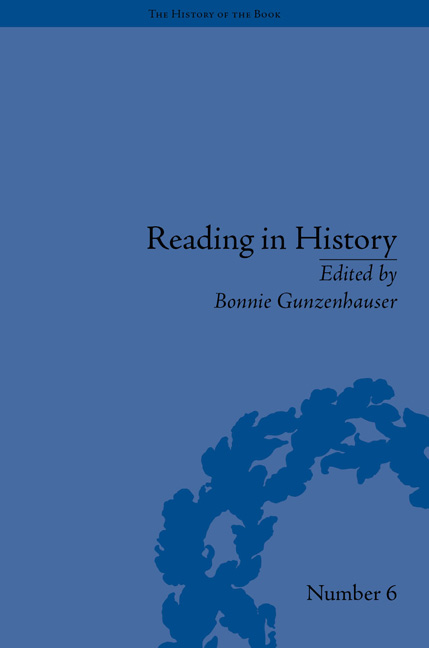Book contents
- Frontmatter
- CONTENTS
- Acknowledgements
- List of Contributors
- Introduction
- Section I Artefactual Methodologies
- 1 On the Use of Anecdotal Evidence in Reception Study and the History of Reading
- 2 Examining the Evidence of Reading: Three Examples from the Reading Experience Database, 1450–1945
- 3 Historical Dictionaries and the History of Reading
- Section II Paratextual Methodologies
- Section III Institutional Methodologies
- Notes
- Works Cited
- Index
1 - On the Use of Anecdotal Evidence in Reception Study and the History of Reading
from Section I - Artefactual Methodologies
- Frontmatter
- CONTENTS
- Acknowledgements
- List of Contributors
- Introduction
- Section I Artefactual Methodologies
- 1 On the Use of Anecdotal Evidence in Reception Study and the History of Reading
- 2 Examining the Evidence of Reading: Three Examples from the Reading Experience Database, 1450–1945
- 3 Historical Dictionaries and the History of Reading
- Section II Paratextual Methodologies
- Section III Institutional Methodologies
- Notes
- Works Cited
- Index
Summary
A life-story … is not ‘hard’ data, but a subjective reimagining of lived experience; and the historian's duty is not accumulation, but analysis and interpretation. (Lyons and Taksa)
What we term ‘anecdotal evidence’ of reading – written records of reading experiences, often in the first person – is clearly of immense interest to historians of reading, hence its collection in the Reading Experience Database. It is also recognized to be intensely problematic, and the most ambitious history of reading yet to be carried out uses it only to add qualitative colour to an account constructed entirely on the basis of quantitative economic data. Scholars who employ such evidence often insist that it be ‘cross-checked’ against other sources, and on occasion this has indeed been very successfully done; for example, Richard Altick finds a close relationship between the price of books and the mention of contemporary writers in the memoirs of working people. However, when we turn to anecdotal evidence it is often because we wish to find out about things that can be approached in no other way, and which are not therefore susceptible to cross-checking.
Perhaps the premier example of the turn to anecdotal accounts is provided in Jonathan Rose's wide-ranging survey of the writings covered by John Burnett, David Vincent and David Mayall's Autobiography of the Working Class. Rose's survey was a project marked out from the very beginning as part of the ‘“new” book history’, distinguishing itself from the ‘old book history’ of Altick and others by its attempt to find out not only what British working-class people read, but what they thought about what they read. Across the sources he surveys, Rose finds a key theme emerging again and again: the transformation of a person's life by his or her reading of canonical ‘great books’. Clearly, we cannot use objective, quantitative data such as sales figures or library records to check whether these transformations really occurred.
- Type
- Chapter
- Information
- Reading in HistoryNew Methodologies from the Anglo-American Tradition, pp. 11 - 28Publisher: Pickering & ChattoFirst published in: 2014



